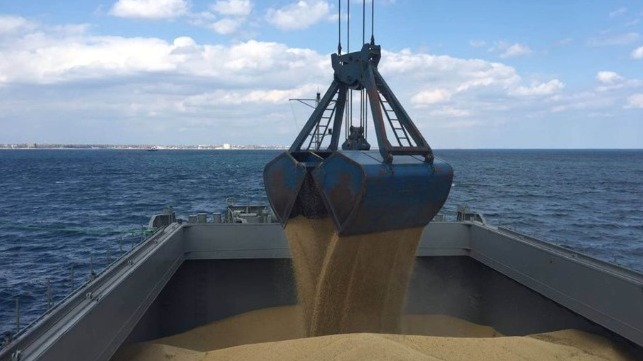Op-Ed: Shipping Could Boost Ukraine's Fortunes - But Reform is Needed

Maritime infrastructure is just about two percent of Ukraine’s GDP - but it's actually much more than that. It is also the enabler of Ukraine’s flourishing industries, from agricultural exports to metallurgy. This point is crucial: ports are not a standalone business - they are the foundation of the economy.
COVID-19 has shown how vital healthy supply chains are, how fragile they are, and indeed the care supply chains need to answer to current needs. The maritime sector cannot be taken for granted.
I’ve been on the sea since the age of 16. Having made my way from shipping clerk to vice-president of the Ukrainian Maritime Chamber, I have seen the industry ebb and flow. What remains unwavering is the devotion of the seafarers and captains that power the sector.
Every time I go to a port, I feel like I’m 16 again, overwhelmed by a sense of awe at the towering and hulking cranes that keep Ukraine fed and growing. However, one cannot but notice the rust. Not only in the metal but in the administration.
Ukraine’s seaports harbor great potential, but they’re flooded by bloat and an outdated organizational structure. To go forward, reforms must be made. Generally, the industry agrees that our ports are held back three main problems.
First, making sure that seafarers’ diplomas are genuine is key to building trust for Ukraine’s maritime industry internationally. The recently appointed Minister of Infrastructure knows this and his team is working in the right direction. Recently, Ukraine’s SBU security service uncovered a scheme for issuing fake documents to seafarers, among its other successful anti-corruption initiatives.
Secondly, Ukraine’s ports are too expensive. In fact, they have the most expensive docking fees in the Black Sea. We need to make port infrastructure more efficient and cheaper to use. The Ukraine Ports Authority must become enabler of the market – not a landlord. Then we will have an environment where the industry can flourish.
Thirdly, we have to improve the Ukrainian flag registry’s standing on the Paris Memorandum, the international rating of each flag state’s trustworthiness and compliance adherence. I join all Ukrainian seafarers when I say – we need to do better so that a ship flying the blue and yellow is welcomed and not treated with suspicion by international ports.
There are common-sense solutions to the problems outlined above. First, we have to start with the Maritime Administration of Ukraine (MAU) which is in charge of seafarers’ licenses. The simple solution is a human resource issue: the MAU needs to be refreshed with people from the industry. Seafarers and captains should be administered by those who can empathize with their concerns.
MAU also needs more transparency and a closer relationship to the Ministry of Infrastructure and other governing bodies. Corruption is often the result of bad incentives – so let’s change the people and structure to move the incentives to benefit the industry. Furthermore, transparency and a stewardship mindset will bring the MAU up closer to European and international standards of regulation.
Second, Ukraine is turning its face to the world. The country is rapidly becoming a more mature member of the world economy and European community. Ports should catch up with a renewed process for concessions, which will invite the best operators. We need to give them the confidence that the Ukraine Ports Authority will work with them in accordance with international best practices. This will make our ports cheaper and more attractive destinations.
International trust will grow with a better system for seafarer diplomas and port concessions. But the MAU will also need to work closer with the industry and the global maritime community to make sure that ships flying Ukraine’s flag are compliant to global standards on one hand, and Ukraine’s business environment is conducive to good behavior on the other.
Ukraine is already on the right path in maritime matters. Once we get the simple things right, the whole of the economy will benefit. Food export profits will grow while domestic prices will fall, and the same for many other sectors. Maritime will be an industry of choice for employment. And finally, Ukraine’s international prestige as a nation will improve – bringing more investors and trading partners into our waters.
Ivan Niyakii is the Vice President of the Ukraine Maritime Chamber - Ukraine’s leading maritime industry association - and CEO of Craneship, a subsidiary of Ukrainian shipping company Transship.
